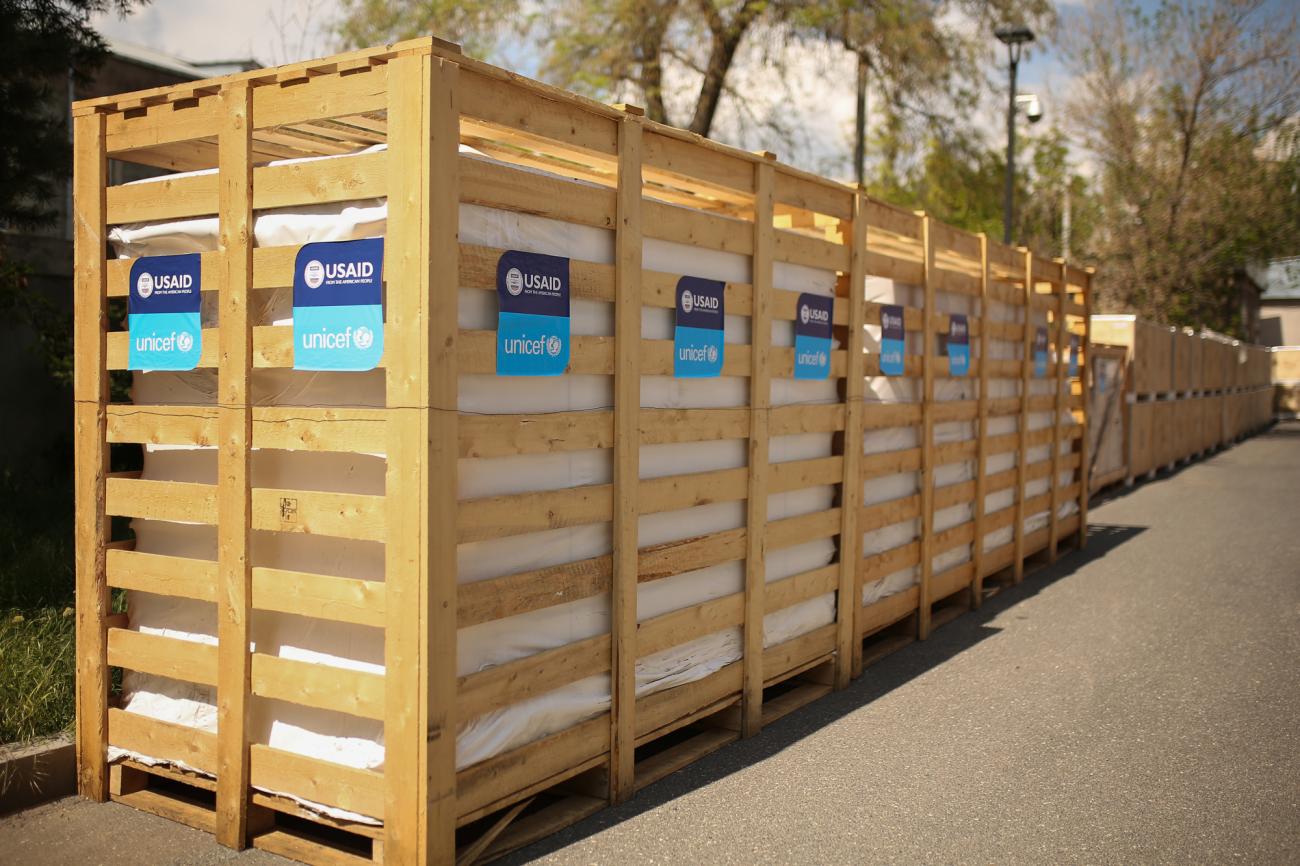With the support of USAID, UNICEF delivered three walk-in cold rooms to the NCDC Armenia, expanding vaccine storage capacity.
USAID and UNICEF continue to support the Ministry of Health to strengthen its National Cold Chain Capacity․ Three new walk-in cold rooms were delivered to the National Center for Disease Control and Prevention in Armenia increasing the number of cold rooms in Armenia. These cold rooms ensure vaccine efficacy, proper storage, and accelerated vaccine roll-out.
John G. Allelo, USAID/Armenia Mission Director, amplified the significance of increasing cold chain capacity in his statement, “Expanding Armenia’s vaccine storage capacity is yet another step in strengthening the national cold chain system as the country seeks to accelerate its ongoing COVID-19 vaccine drive, ensuring more families and communities across the nation can be protected and reducing the risk of severe illness and death.”
“Empowering our regions with the necessary equipment to store vaccines is a critical step in continuing to increase our COVID-19 vaccinations and reaching our routine immunization targets. The continuous increase of our cold chain capacity will allow for better storage conditions in all areas throughout Armenia,” said Lena Nanushyan, First Deputy Minister of the Ministry of Health.
“Over the past year, Armenia has received large quantities of COVID-19 vaccines, including those delivered by UNICEF through the COVAX facility. Efforts to strengthen the cold chain to accelerate vaccine roll-out were therefore the need of the hour, which is why UNICEF worked with the Ministry of Health to first evaluate the system and new needs. Beyond the immediate needs related to the pandemic, this equipment will continue to serve routine immunization programmes for children,” noted Christine Weigand, UNICEF Representative in Armenia.
The cold rooms are refrigeration chambers containing five-tier stainless steel shelving which support a weight of 300kg and floor, wall, and ceiling panels that maintain temperatures between +2°C to +8°C for vaccine storage.
“The cold rooms are a crucial part of the cold chain system, efficient from logistics point of view, as they have large storage capacity and do not require separate refrigerators or freezers to ensure vaccines are kept in proper temperature and do not lose their efficacy. The larger cold rooms, one of which will be installed in Yerevan and the other one in Shirak region, are 40 cubic meters with a vaccine storage capacity of up to 1 year. The smaller is 10 cubic meters and will be installed in Vayots Dzor region with a storage capacity of up to 3 months,” said Gayane Sahakyan, Deputy Director General of the National Center for Disease Control and Prevention.
In the coming months, USAID and UNICEF will deliver 210 freezers (including five ultracold freezers), and 110 refrigerators to Armenia. This will be in addition to the 80 refrigerators and 285 freezers delivered at the beginning of April which have been distributed to 250 primary health care facilities across the country, enhancing availability of vaccines for all communities.





